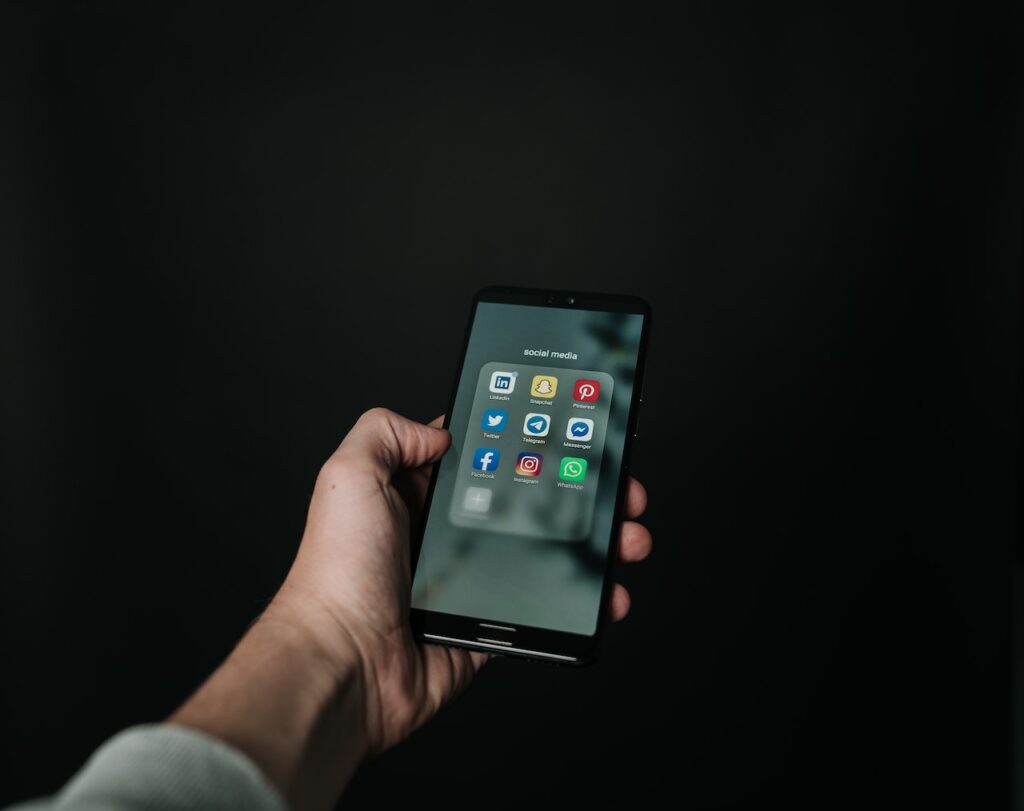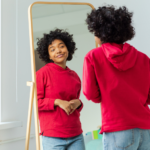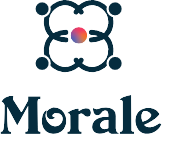Hands up if you start your morning with a quick scroll through Instagram, and end your day by flicking through TikTok. Social media has become so deeply ingrained in our everyday lives that it’s almost impossible to remember what life was like before it.
On the one hand, social media is a wonderful tool designed to connect like-minded people, gather information, self-expression, advertise, and commerce. It’s a source of inspiration and a place where people can express their creativity or showcase their talent. But what happens when it swings the other way, and people end up comparing themselves to what they see online? Un-moderated social media can have some seriously detrimental effects on people’s health and wellbeing.
Nowadays, people share almost all aspects of their lives on social media, and with the emergence of the ‘influencer’, some people are basing their entire career on posting content and sharing the ins and outs of their life. We all enjoy having a sneak peek into someone else’s day and it can actually give us some good ideas and inspiration. But if you’re not careful, you can find yourself constantly bombarded by other people’s success, and you might find yourself comparing your life to the edited versions we see online.
How does social media affect mental health
Every day millions of new videos and photos are posted to social media all over the world. Scrolling through socials has become such a staple in our daily lives, most of us aren’t even aware we’re doing it anymore. We all love good snoop into other people’s lives, but without moderation, it can come with some serious health side effects.
The problem with social media is that there’s no way to decipher how much is ‘real-life’ and how much is glamourised for the public eye. Seeing someone’s cookie-cutter life in their big house, nice car and seemingly endless holidays plastered all over the internet doesn’t do anything for our own self esteem, and it can become all too easy to compare our lives with the heavily edited, snapshot version we see on their account.
Social media has the power to make people feel like they are not enough, or that they aren’t doing well in life because they’re constantly comparing it to the few filtered seconds of someone else’s day that they’ve seen on TikTok, for example. Particularly for children, teens, and young adults, social media can lead to all sorts of mental health issues surrounding body image and ‘natural’ beauty, as they see a highly edited picture and believe they should be contorting themselves to look just like this. Children, due to their early stage of development, are more susceptible to the dangers of social media than adults, as their ability to self-regulate has yet to fully form. Holding what we see on social media as a benchmark for how our ‘real’ lives should look is unrealistic and can lead to disappointment and a loss of self esteem.
Aside from the obvious impact social media can have on mental health by damaging how people see themselves and giving them a warped sense of reality, there are some more subtle health concerns that people tend to overlook. Just like the use of drugs or alcohol, overuse of social media can infiltrate the dopaminergic pathways, acting as a short-lived reward for the brain providing immediate gratification. Over time the recurrent checking of social media, which has been attributed to smoking a cigarette, can become addictive and result in more serious mental health conditions. The same part of the brain is activated when scrolling through social media and when taking addictive substances.
Excessive exposure to the harmful blue light emitted from screens on phones and laptops, for example, can also severely disrupt your sleep cycle. The blue light actually restrains the melatonin production needed to prepare the brain and body for sleep, by tricking it into thinking it’s actually daytime. This can seriously distort your sleep routine and stop you from getting the deep REM sleep your brain needs to heal and recover every night. A lack of sleep can trigger or exacerbate mental health conditions as well as lowering your immune system and make you more susceptible to illness.
How to manage social media and mental health
There are two sides to every story, and whilst this one sounds very doom and gloom, there are actually some huge positives to social media. It’s not something we want people to cut out of their lives cold turkey but knowing how to moderate usage and remain resilient is a very important tactic for maintaining a healthy consumption of social media apps.
Having self confidence and a strong resolve will prevent you from comparing yourself to what you see online. The knowledge that everybody’s path is different and just because the glamorous side of their life is plastered in front of your eyes, it doesn’t mean that yours is any less worthwhile. If self esteem is something you struggle with, then you’re in the right place because here at Morale, we’re all about building self belief. Just a few affirmations every morning will help to reinforce a positive mindset and boost your self confidence, so the next time you start comparing yourself to what you see on social media, you’ll be able to hit the like button and keep scrolling, without it affecting how you see yourself!
It’s also important to remind yourself regularly that what you’re seeing is a snapshot of someone’s day, without all the hard work or messy jobs in between. Their homes may look immaculate and their hair always styled but remind yourself that you’re seeing an edited and glamorised 5-minute video of their day and not the bigger picture, with the usual clutter and bedhead. What you see online shouldn’t be taken as gospel truth, so each time you can feel yourself slipping back into comparing yourself, it’s important to remember that it is probably not the whole story and they have just the same amount of insecurities or struggles as you do.
Instilling healthy sleep hygiene into your routine is going to be super important to keep your brain spick and span whilst preserving your mental health. Sleep deprivation is one of the biggest triggers of anxiety and depression, so prioritising a good night’s sleep is very important to protect your mental health. Instead of scrolling before bed, try to put the phone done a good hour before you want to go to sleep, and instead pick up a book or practice some mindfulness. Without the blue lights halting the production of melatonin, your body will be able to fall into a deep and restful sleep much more quickly.
Here at Morale, we want to use social media to boost people’s mental health rather than destroy it. Instead of sharing harmful messages online, we decided to start sharing positive ones instead. By downloading our app and following us on social media, you can join us in sharing positive vibes every day with those in your network and use it to spread happiness and self belief with those you care about. Social media is a fantastic tool that can connect and bring together people from all places and all walks of life, so let’s make the most of it and start sharing positivity and compassion.
Download our app from Google Play or Apple’s App Store and start spreading the love.
We want to hear what you’ve got to say, so if you’ve got some feedback for us then we’re all ears. Just drop us a message to contact@moraleapp.co.











